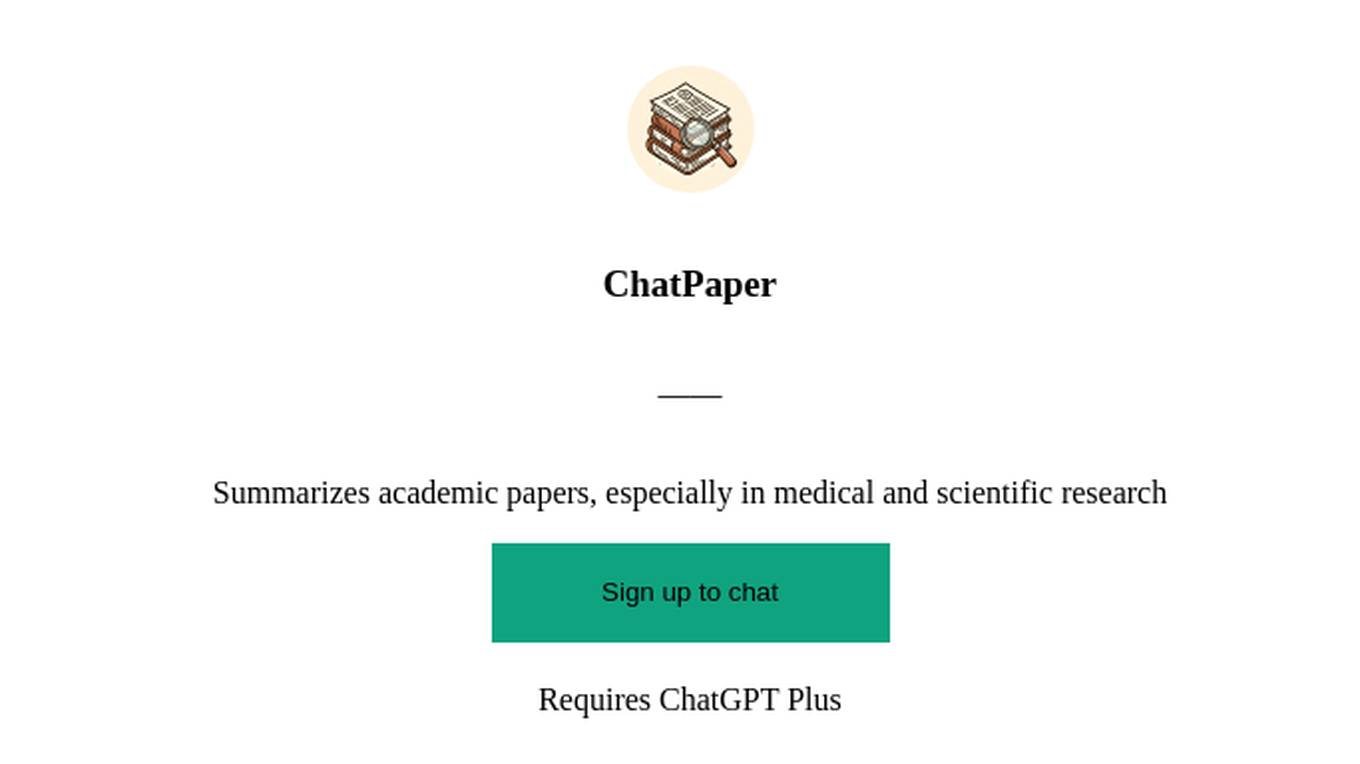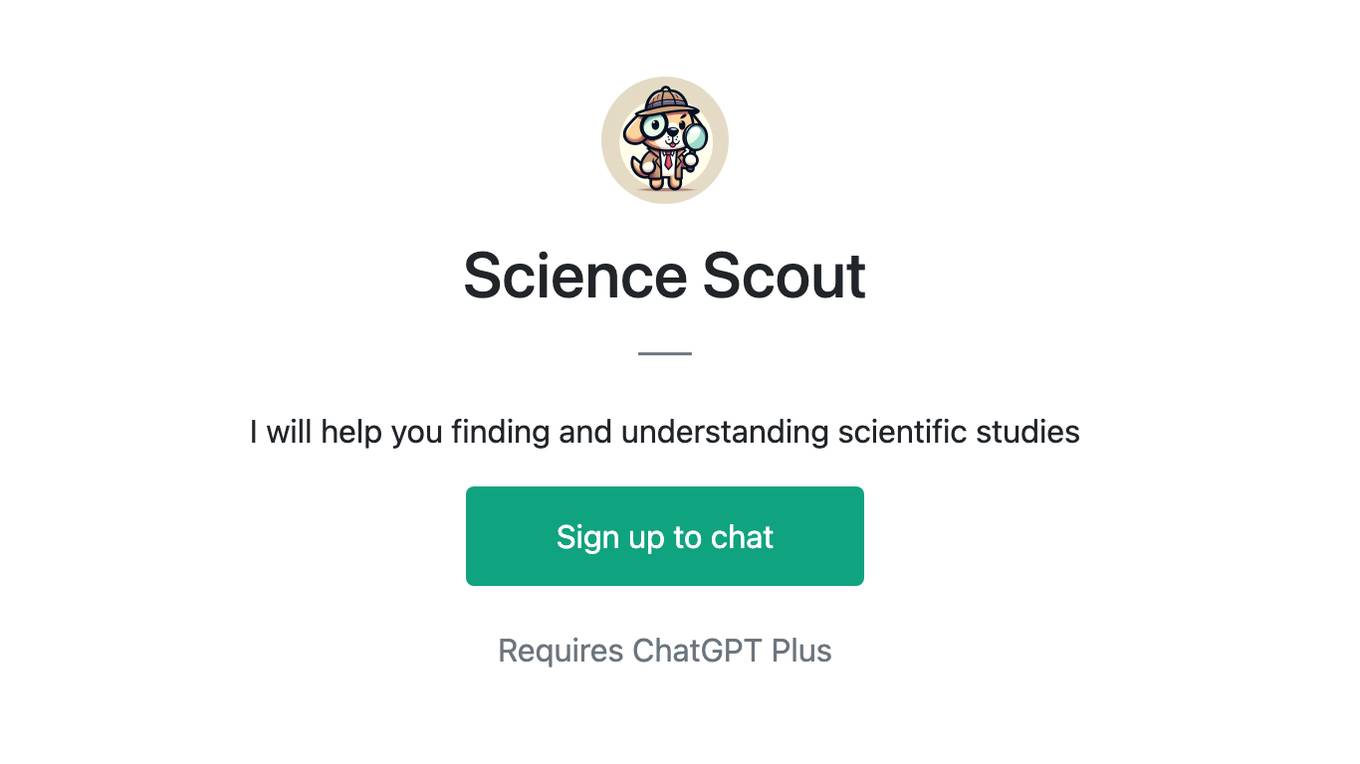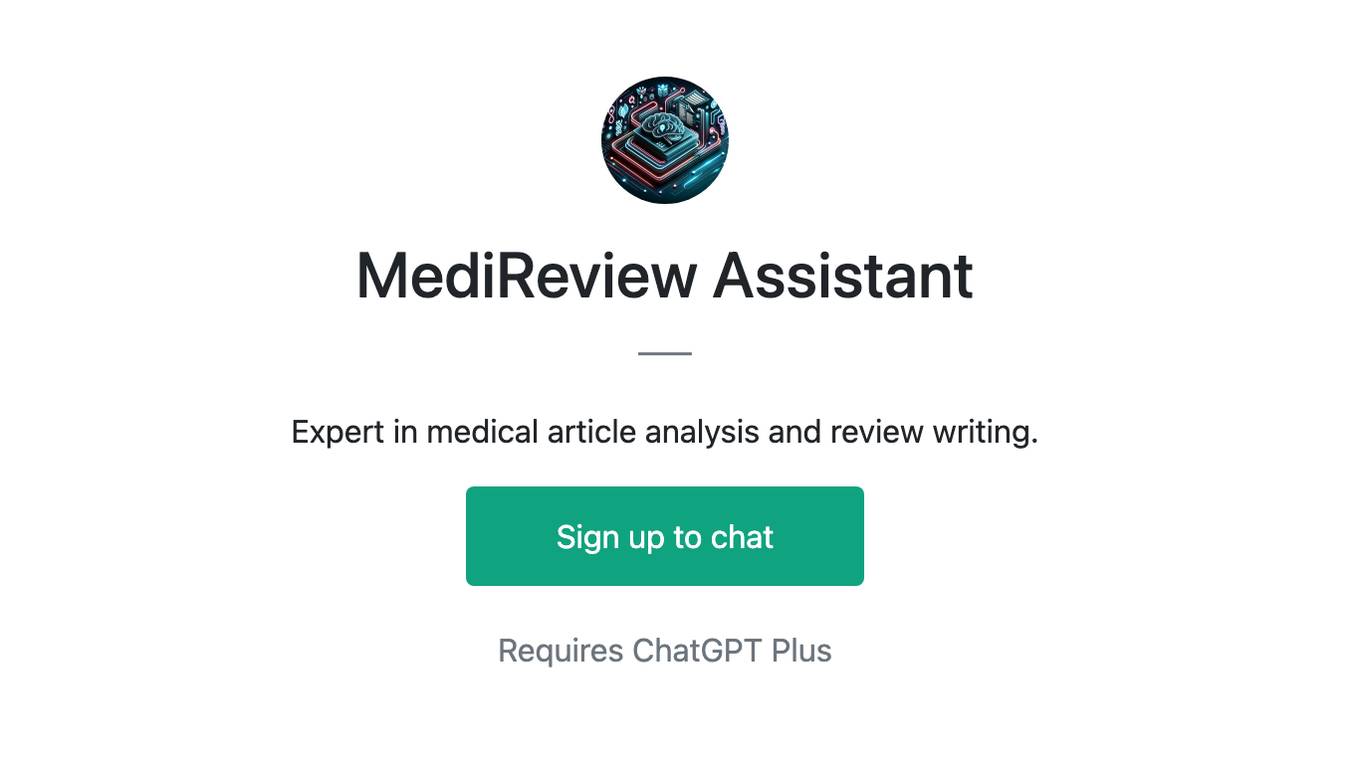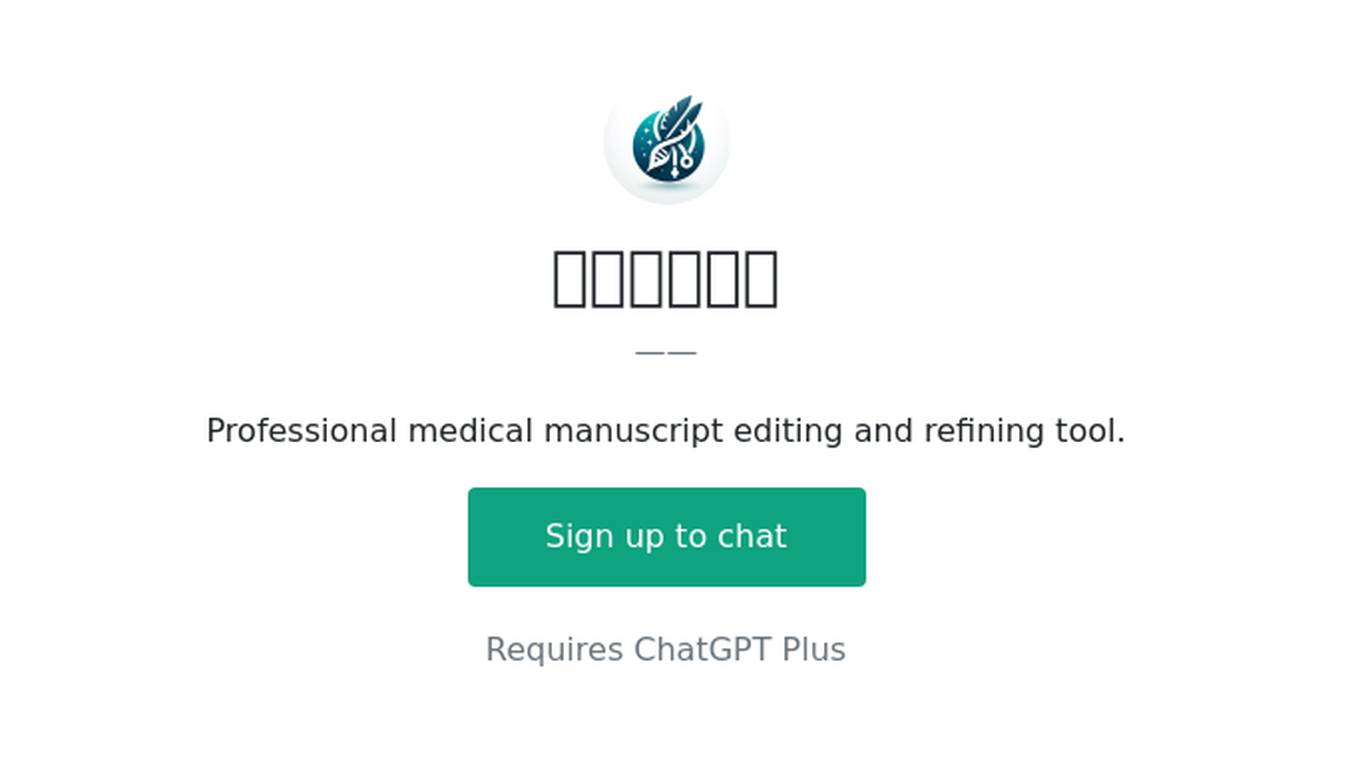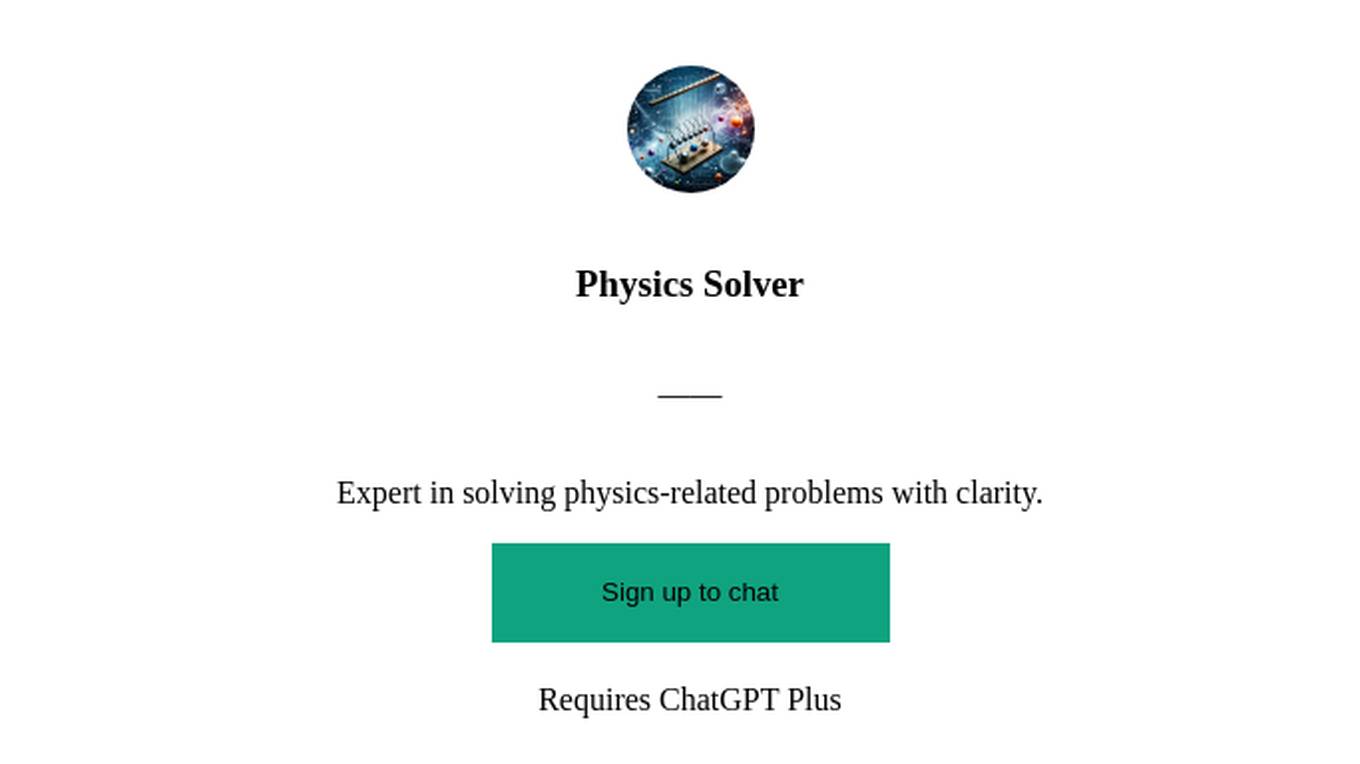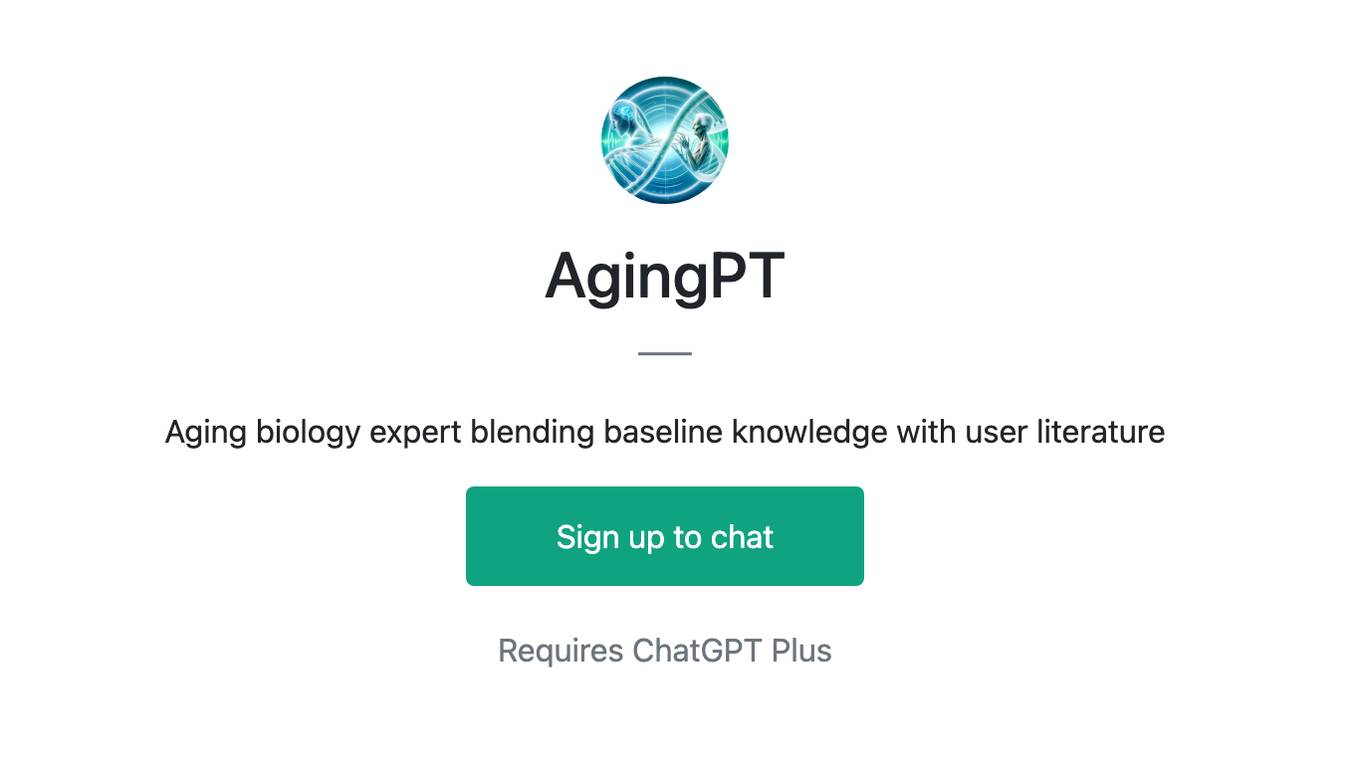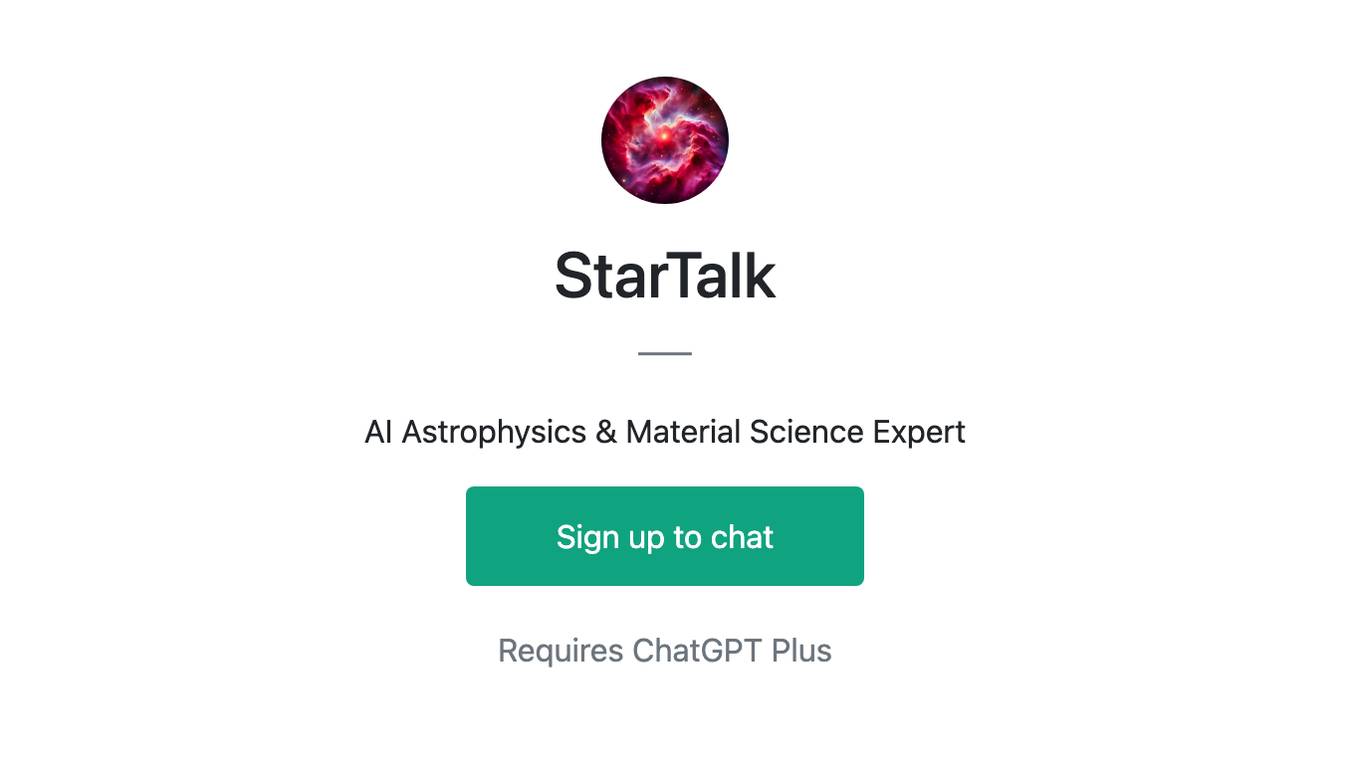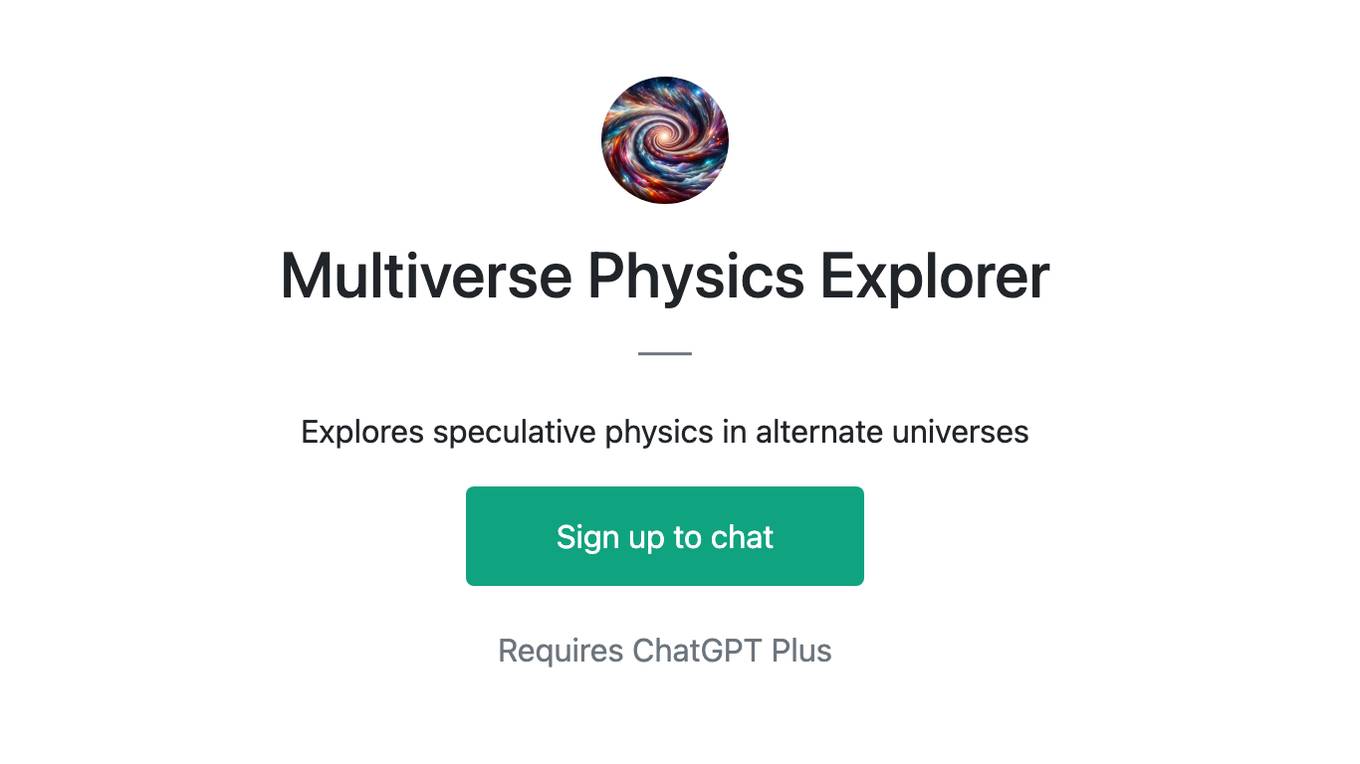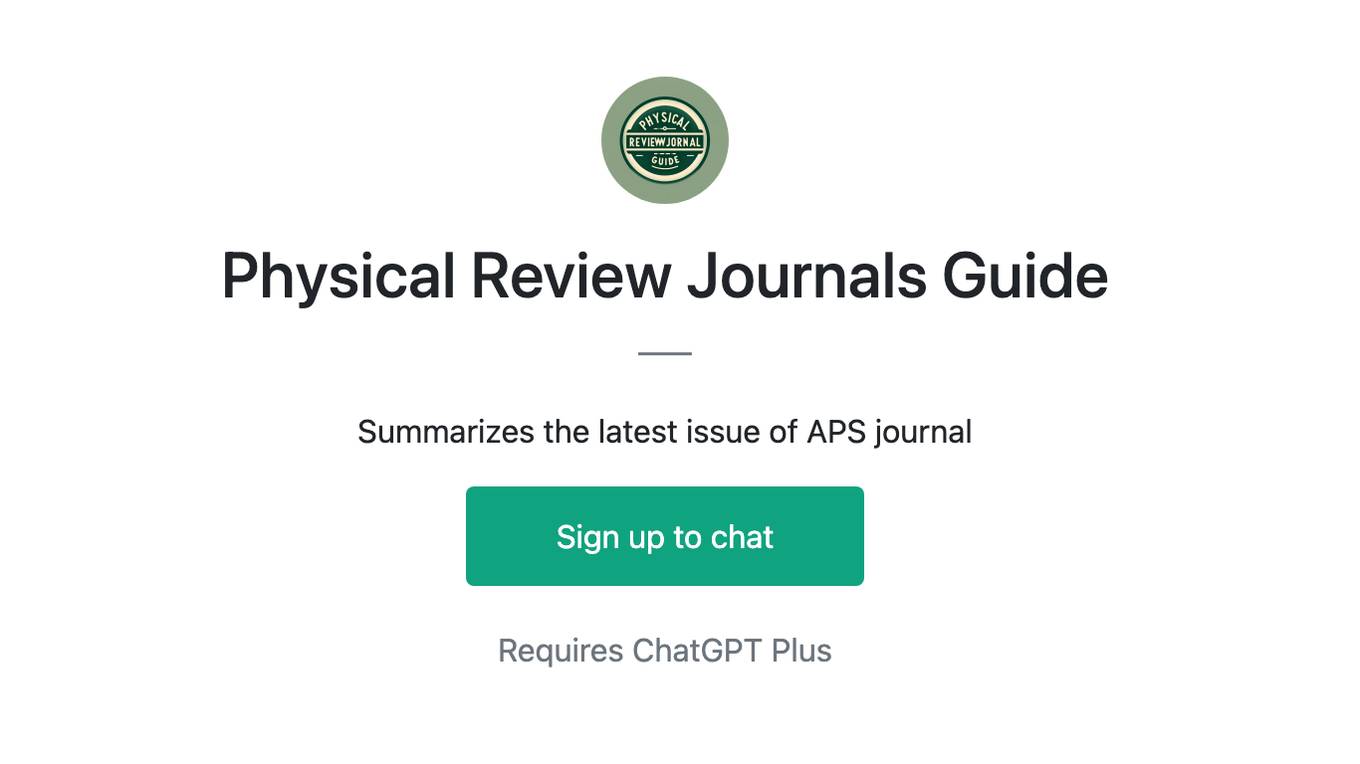Best AI tools for< Scientific Research >
20 - AI tool Sites
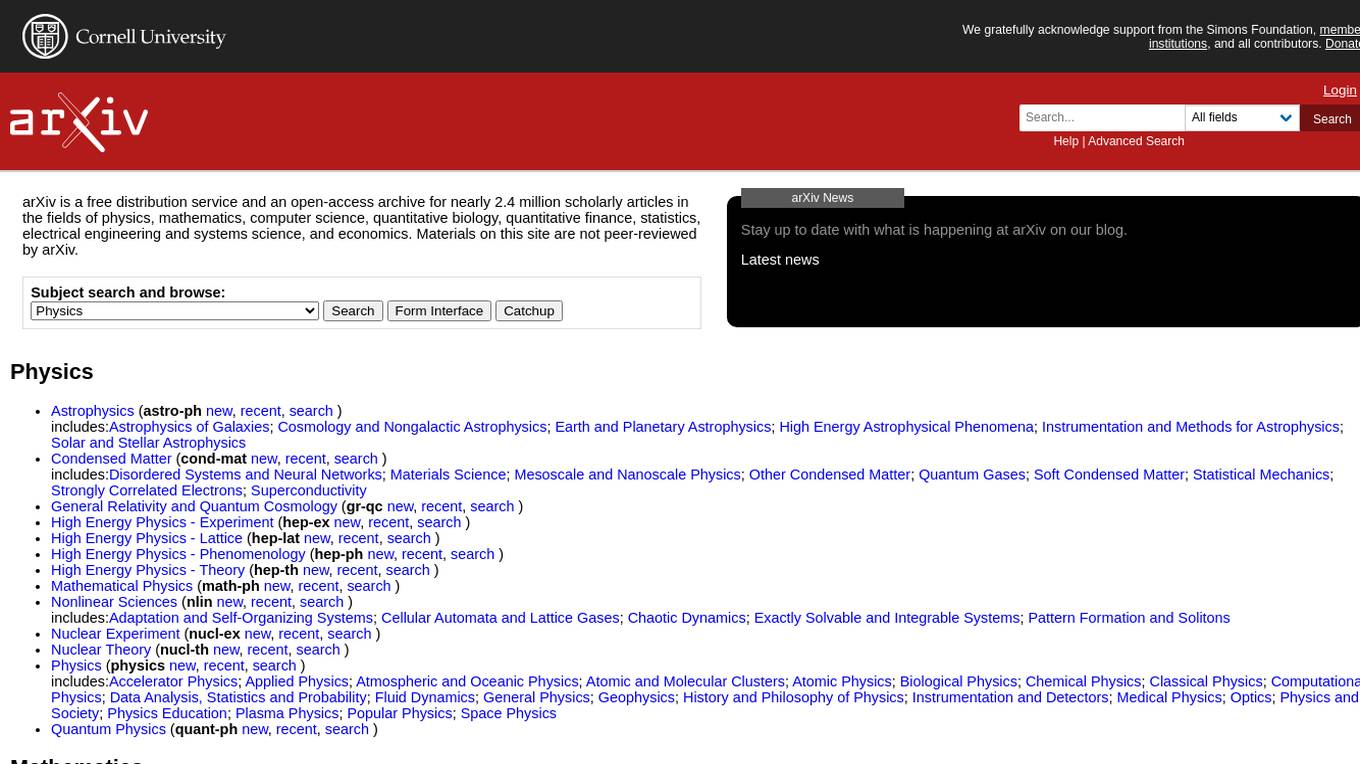
arXiv
arXiv.org is a free distribution service and an open-access archive for nearly 2.4 million scholarly articles in the fields of physics, mathematics, computer science, quantitative biology, quantitative finance, statistics, electrical engineering and systems science, and economics. Materials on this site are not peer-reviewed by arXiv.
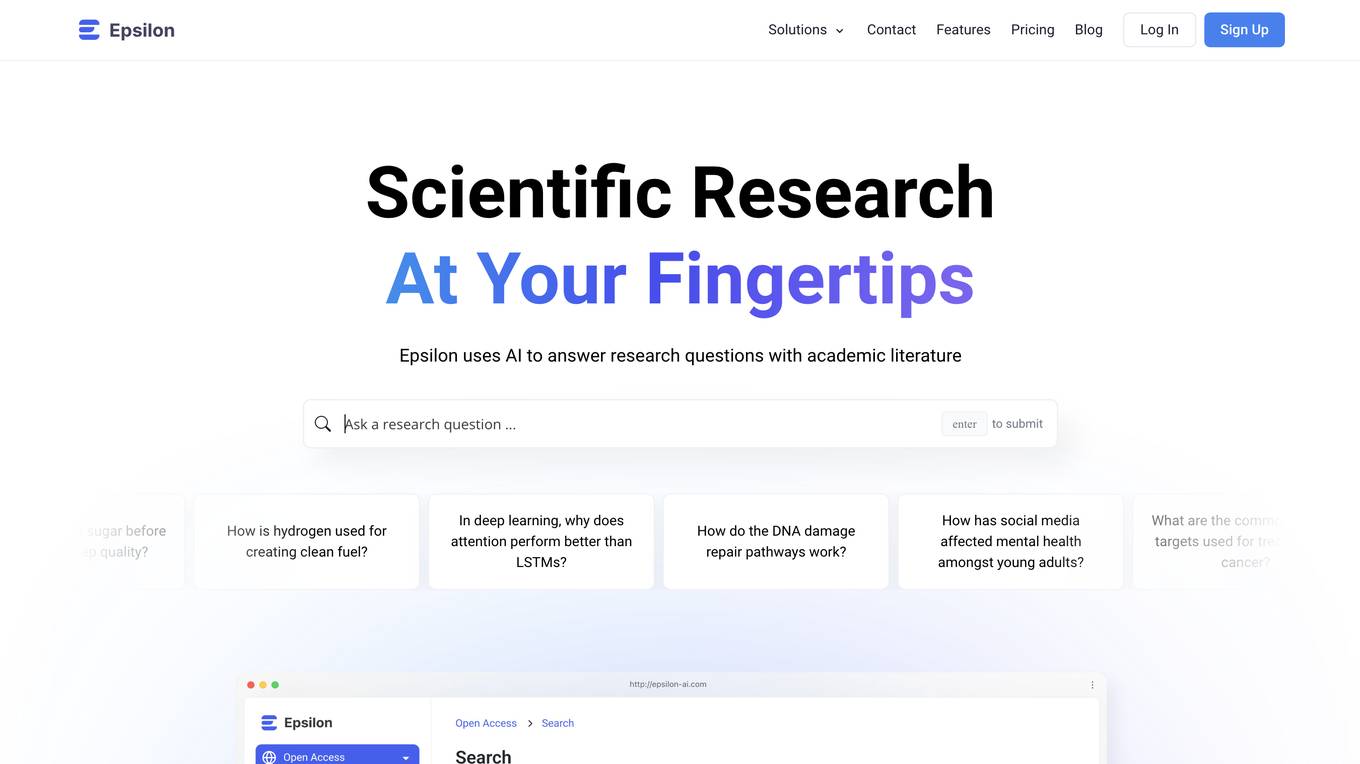
Epsilon
Epsilon is an AI search engine designed for scientific research solutions. It helps researchers find evidence, citations, and relevant information from over 200 million academic papers. Epsilon can summarize passages, group search results, extract key information from multiple papers, and provide comprehensive summaries. Trusted by over 30,000 researchers worldwide, Epsilon is a reliable tool for conducting literature reviews, drafting proposals, and executing research projects.

Floatz
Floatz is an AI tool designed for scientific research, aimed at inspiring individuals to create extraordinary things. The platform leverages artificial intelligence to assist researchers in their work, providing innovative solutions and insights to drive scientific discoveries. With a focus on creativity and imagination, Floatz empowers users to explore new possibilities and push the boundaries of knowledge in various fields of study.
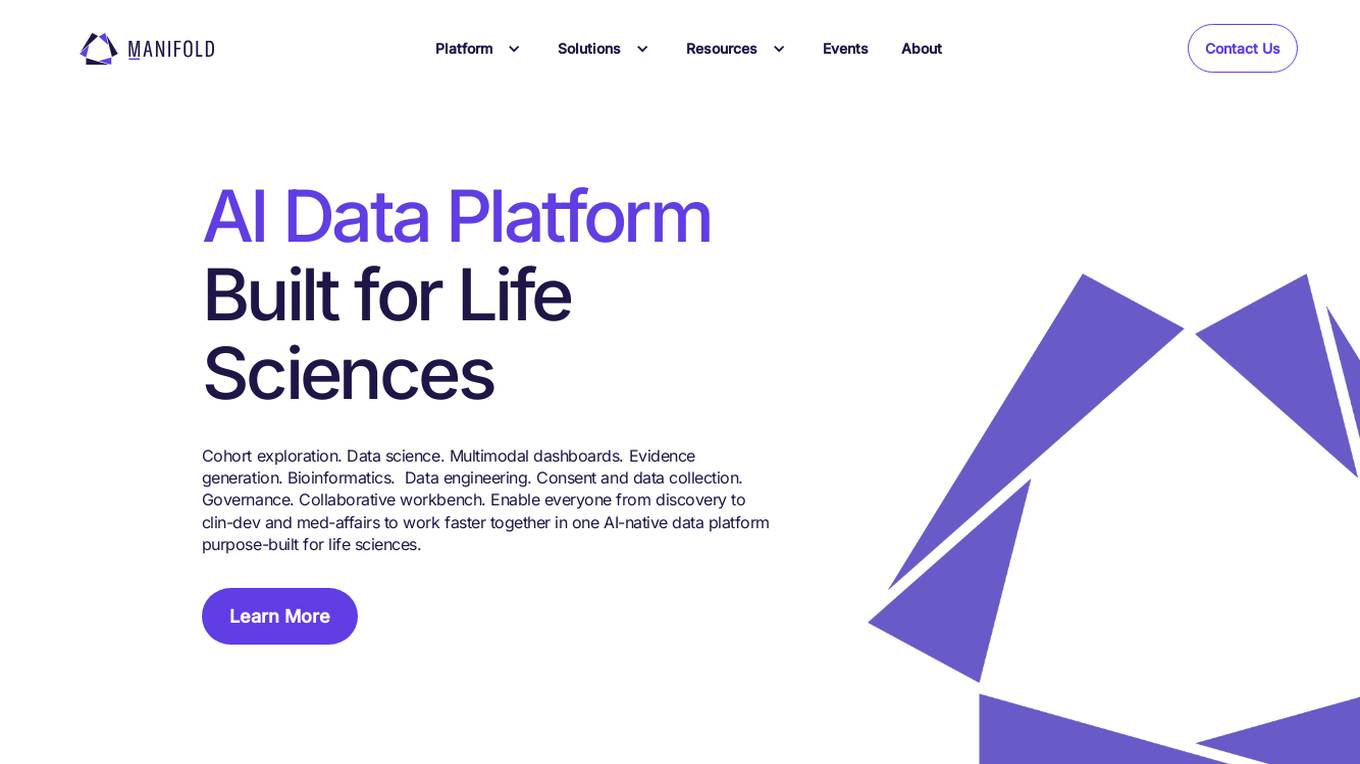
Manifold
Manifold is an AI data platform designed specifically for life sciences. It offers a collaborative workbench, data science tools, AI-powered cohort exploration, batch bioinformatics, data dashboards, data engineering solutions, access control, and more. The platform aims to enable faster collaboration and research in the life sciences field by providing a comprehensive suite of tools and features. Trusted by leading institutions, Manifold helps streamline data collection, analysis, and collaboration to accelerate scientific research.
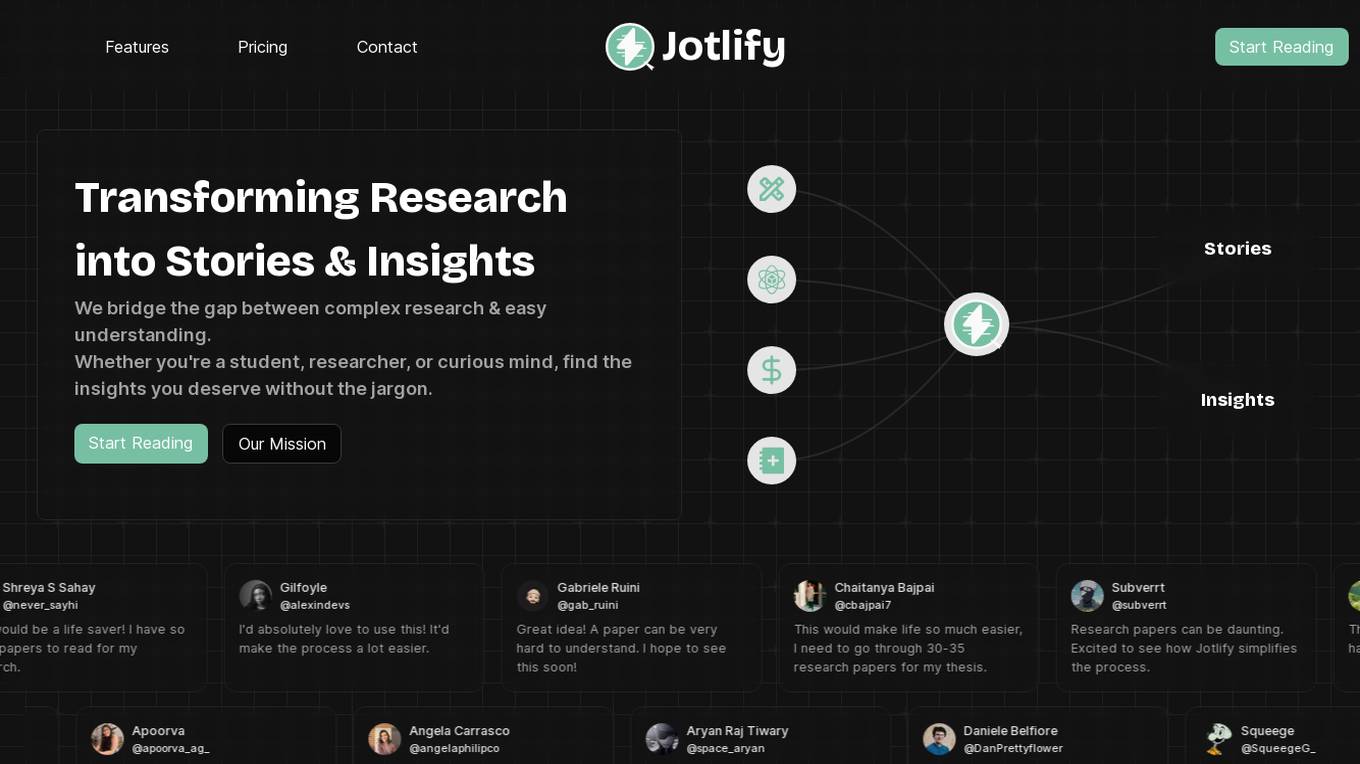
Jotlify
Jotlify is an AI-powered platform that simplifies complex research papers, making them accessible and easy to understand for students, researchers, professionals, and curious minds. It transforms dense academic content into engaging stories and insights, bridging the gap between complex research and easy understanding. With Jotlify, users can uncover stories and insights that can transform their understanding and impact various aspects of their lives.
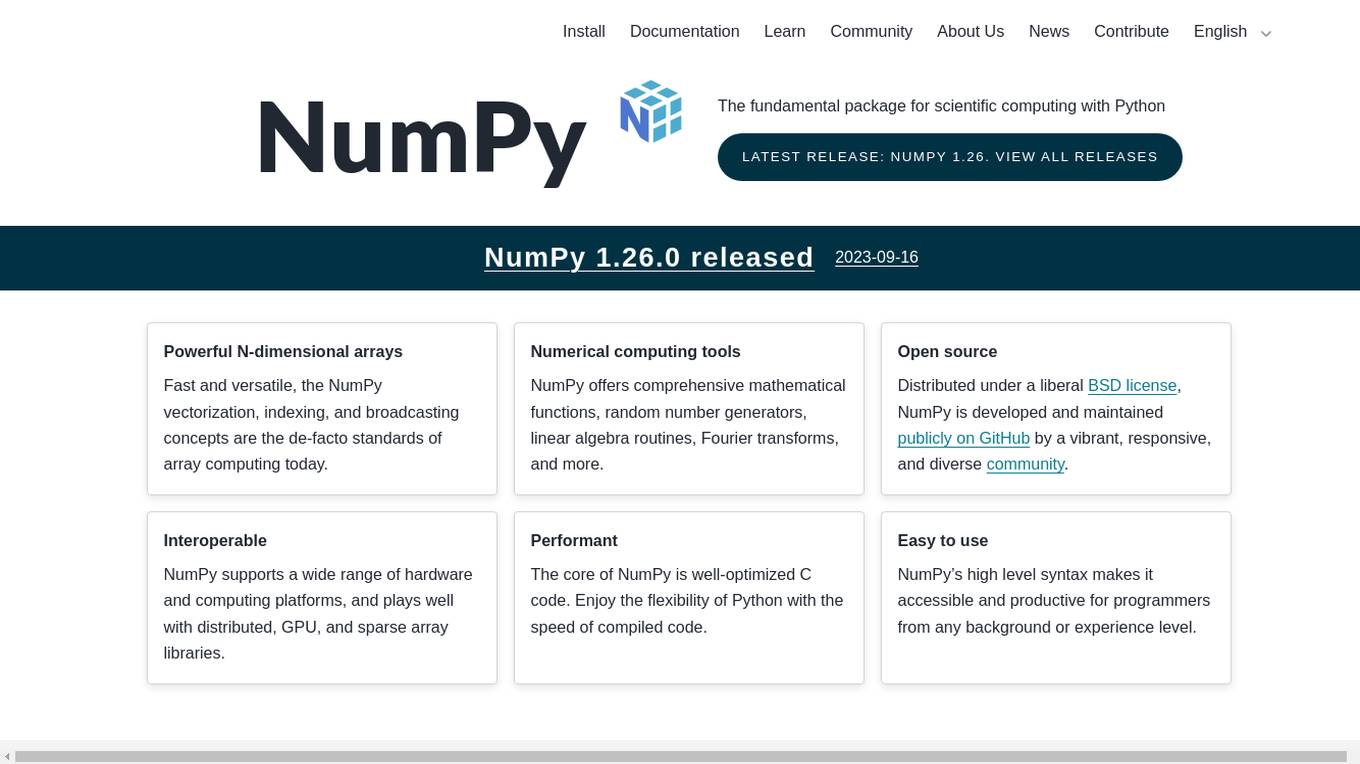
NumPy
NumPy is a library for the Python programming language, adding support for large, multi-dimensional arrays and high-level mathematical functions to perform operations on these arrays. It is the fundamental package for scientific computing with Python and is used in a wide range of applications, including data science, machine learning, and image processing. NumPy is open source and distributed under a liberal BSD license, and is developed and maintained publicly on GitHub by a vibrant, responsive, and diverse community.
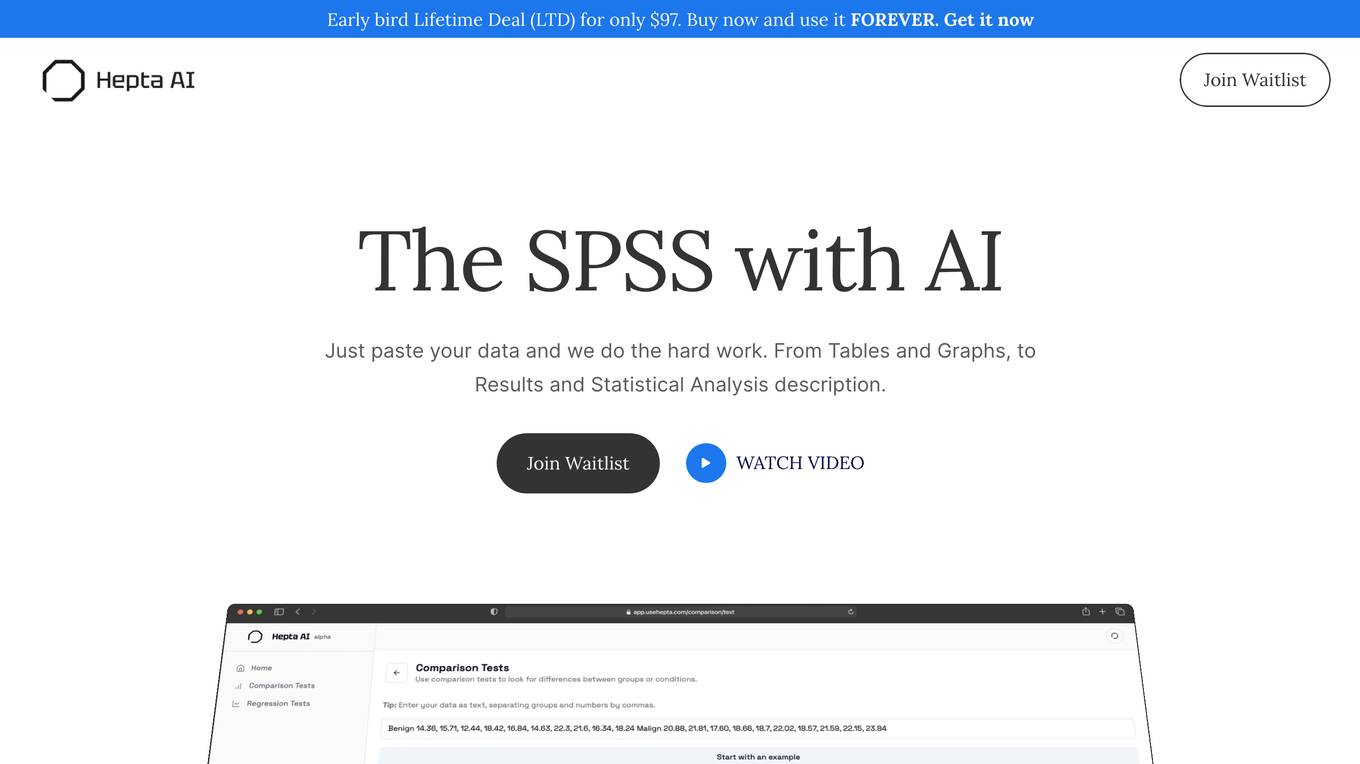
Hepta AI
Hepta AI is an AI-powered statistics tool designed for scientific research. It simplifies the process of statistical analysis by allowing users to easily input their data and receive comprehensive results, including tables, graphs, and statistical analysis. With a focus on accuracy and efficiency, Hepta AI aims to streamline the research process for scientists and researchers, providing valuable insights and data visualization. The tool offers a user-friendly interface and advanced AI algorithms to deliver precise and reliable statistical outcomes.

Science in the News
Science in the News is a Harvard graduate student organization with a mission to bridge the communication gap between scientists and non-scientists. It provides a platform for researchers to share their work with the wider community in an accessible and engaging way. The website features articles, podcasts, videos, and other resources on a wide range of scientific topics, including astronomy, biology, chemistry, computer science, and physics.

N/A
The website is currently experiencing a temporary service outage, indicated by the error message '503 Service Temporarily Unavailable'. This error is typically displayed when the server is unable to handle the request due to temporary overloading or maintenance. The message 'nginx' suggests that the website is using the Nginx web server software. Users encountering this error are advised to wait for the service to be restored or contact the website administrator for further assistance.
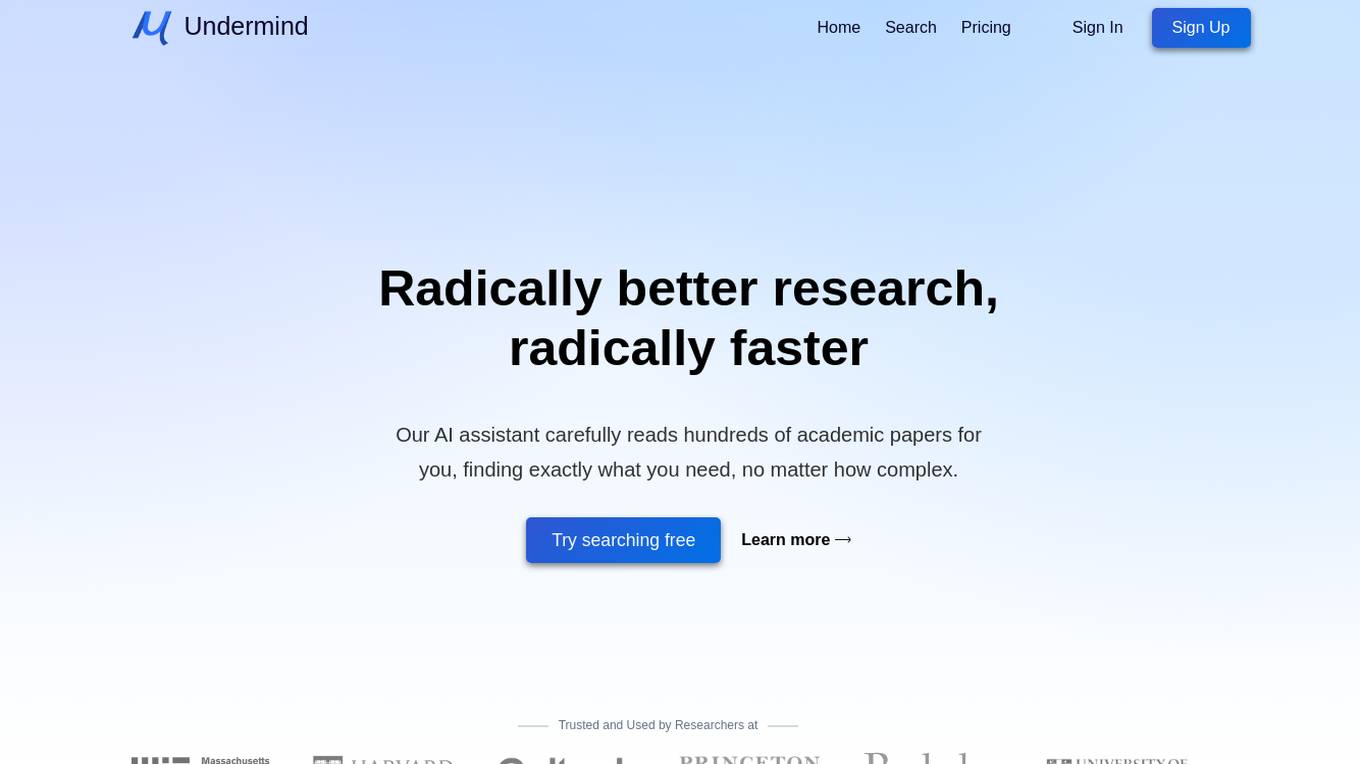
Undermind
Undermind is an AI-powered scientific research assistant that revolutionizes the way researchers access and analyze academic papers. By utilizing intelligent language models, Undermind reads and synthesizes information from hundreds of papers to provide accurate and comprehensive results. Researchers can describe their queries in natural language, and Undermind assists in finding relevant papers, brainstorming questions, and discovering crucial insights. Trusted by researchers across various fields, Undermind offers a unique approach to literature search, surpassing traditional search engines in accuracy and efficiency.
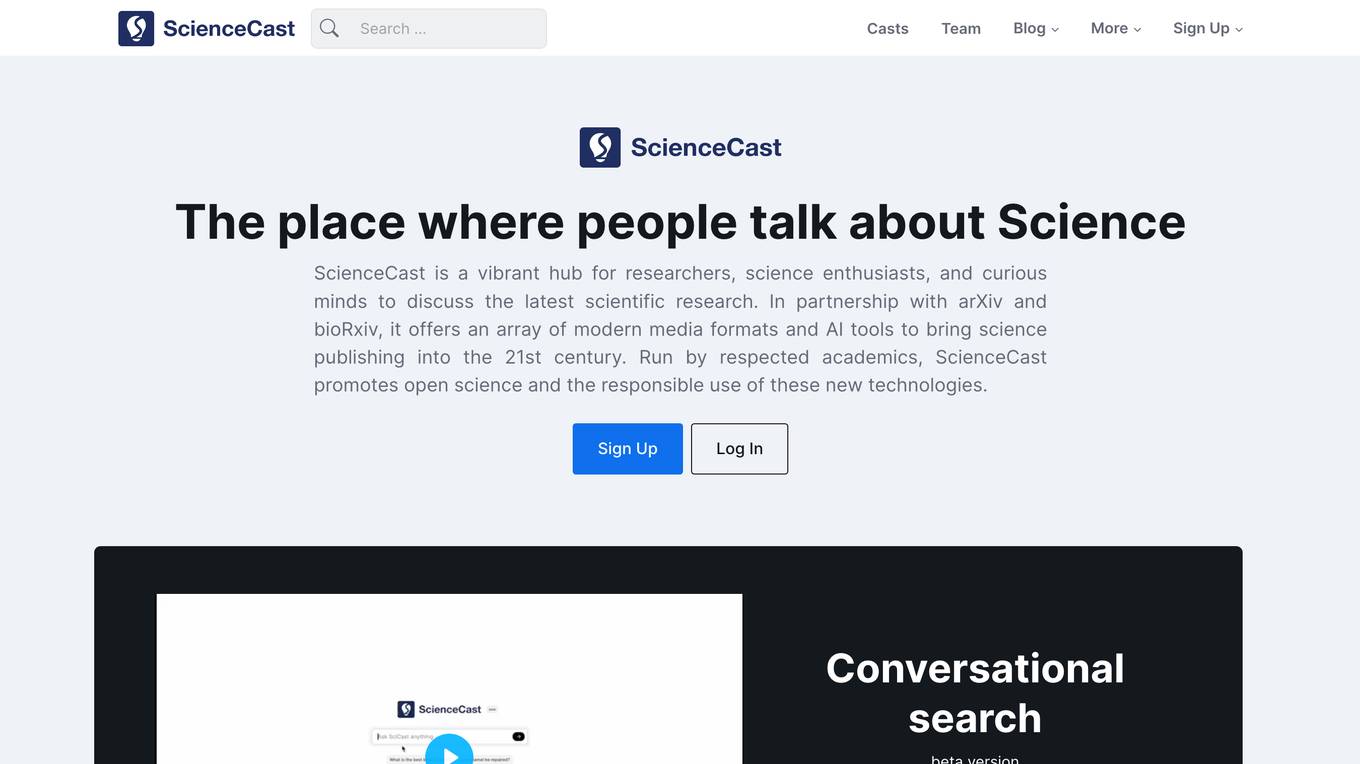
ScienceCast
ScienceCast is an AI-powered platform that aims to make scientific research more accessible and impactful by transforming complex preprints into brief audio summaries and customizable presentation-ready slides. Leveraging advanced AI technology, ScienceCast empowers researchers to communicate their work effectively and enables anyone interested in science to understand it. The platform bridges the gap between researchers and audiences, creating a world where knowledge is easier to share, understand, and create with.

System Pro
System Pro is a cutting-edge platform that revolutionizes the way users conduct research, particularly in the fields of health and life sciences. It offers a fast and dependable method to discover, combine, and place scientific research in context. By leveraging advanced technology, System Pro enhances the efficiency and effectiveness of research processes, empowering users to access valuable insights with ease.

Nature
Nature is a scientific journal that publishes original research, reviews, news, and commentary on a wide range of scientific disciplines. It is one of the world's most prestigious scientific journals, and its articles are widely cited in the scientific literature. Nature is published by Springer Nature, a leading global publisher of scientific, technical, and medical content.
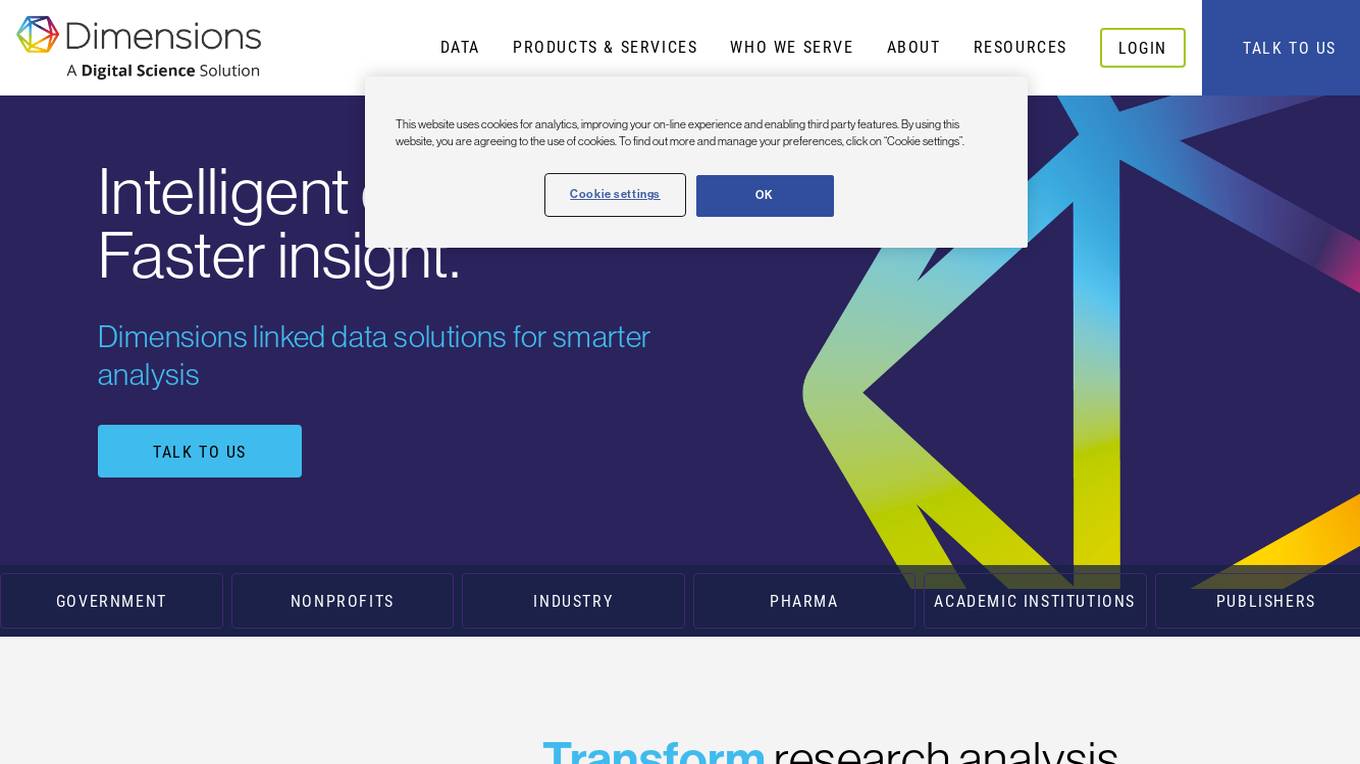
Dimensions AI
Dimensions AI is an advanced scientific research database that provides a suite of research applications and time-saving solutions for intelligent discovery and faster insight. It hosts the largest collection of interconnected global research data, including publications, clinical trials, patents, policy documents, grants, datasets, and online citations. The platform offers easy-to-understand visualizations, purpose-built applications, and integrated AI technology to speed up research interpretation and analysis. Dimensions is designed to propel research by connecting the dots across the research ecosystem and saving researchers hours of time.
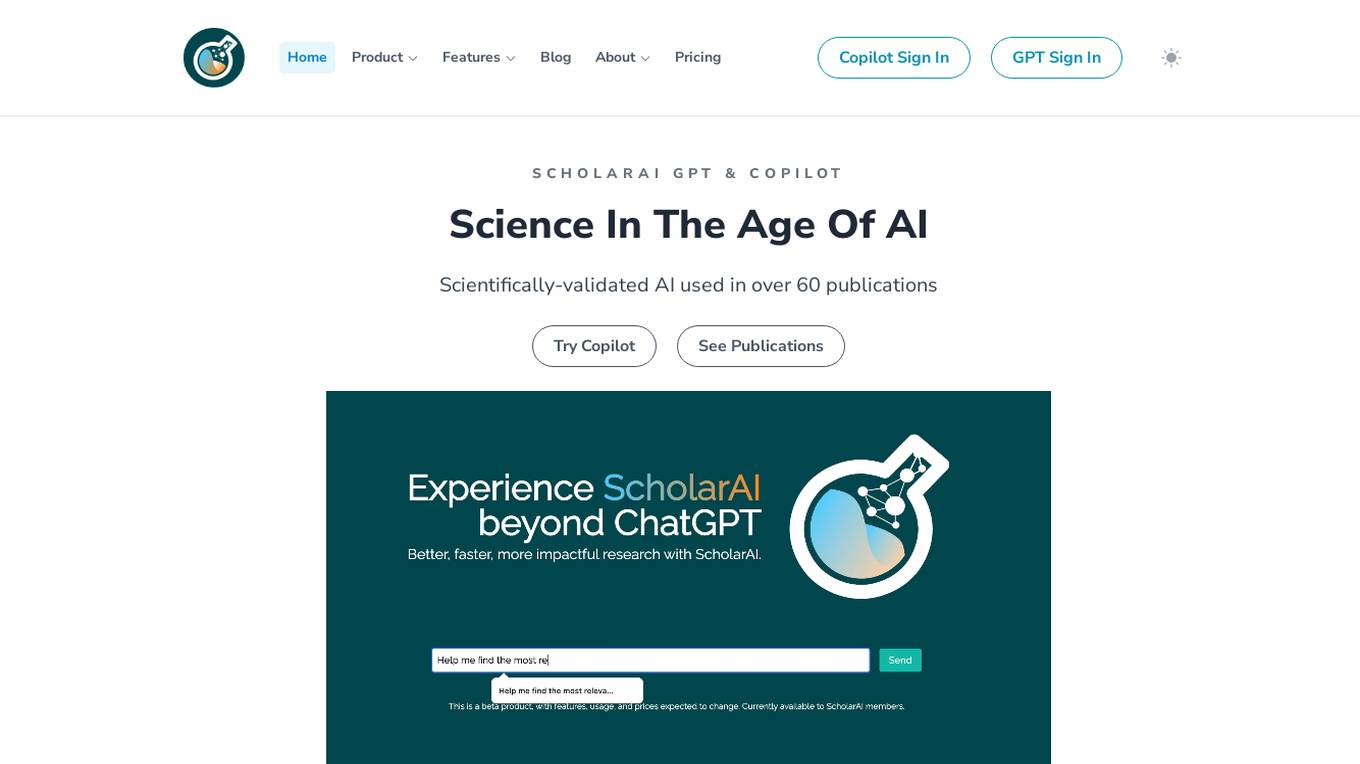
ScholarAI
ScholarAI is an AI-powered scientific research tool that offers a wide range of features to help users navigate and extract insights from scientific literature. With access to over 200 million peer-reviewed articles, ScholarAI allows users to conduct abstract searches, literature mapping, PDF reading, literature reviews, gap analysis, direct Q&A, table and figure extraction, citation management, and project management. The tool is designed to accelerate the research process and provide tailored scientific insights to users.
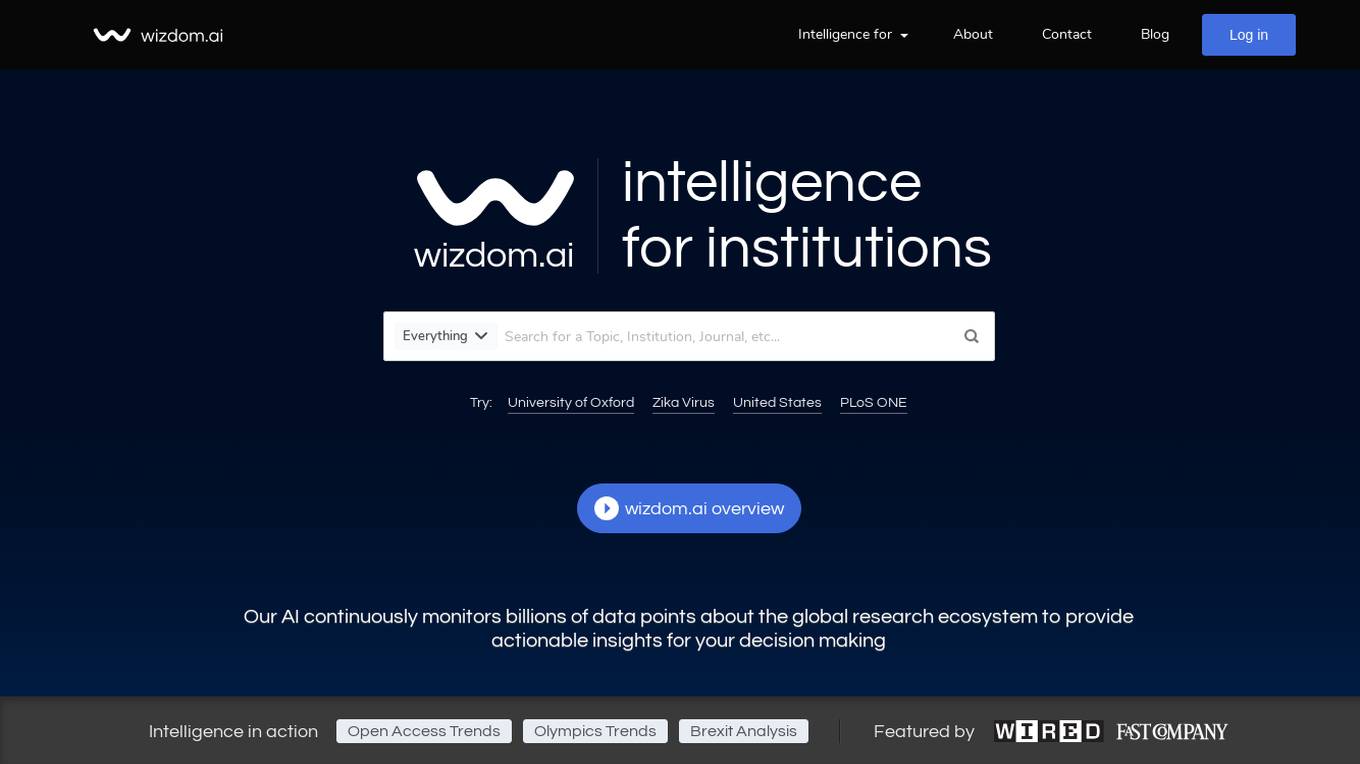
Wizdom.ai
Wizdom.ai is an AI-powered research intelligence platform that provides comprehensive insights into the global research ecosystem. It continuously monitors billions of data points to generate analytics about scientific developments, helping users make informed decisions and progress research further and faster. Wizdom.ai offers a range of features, including:
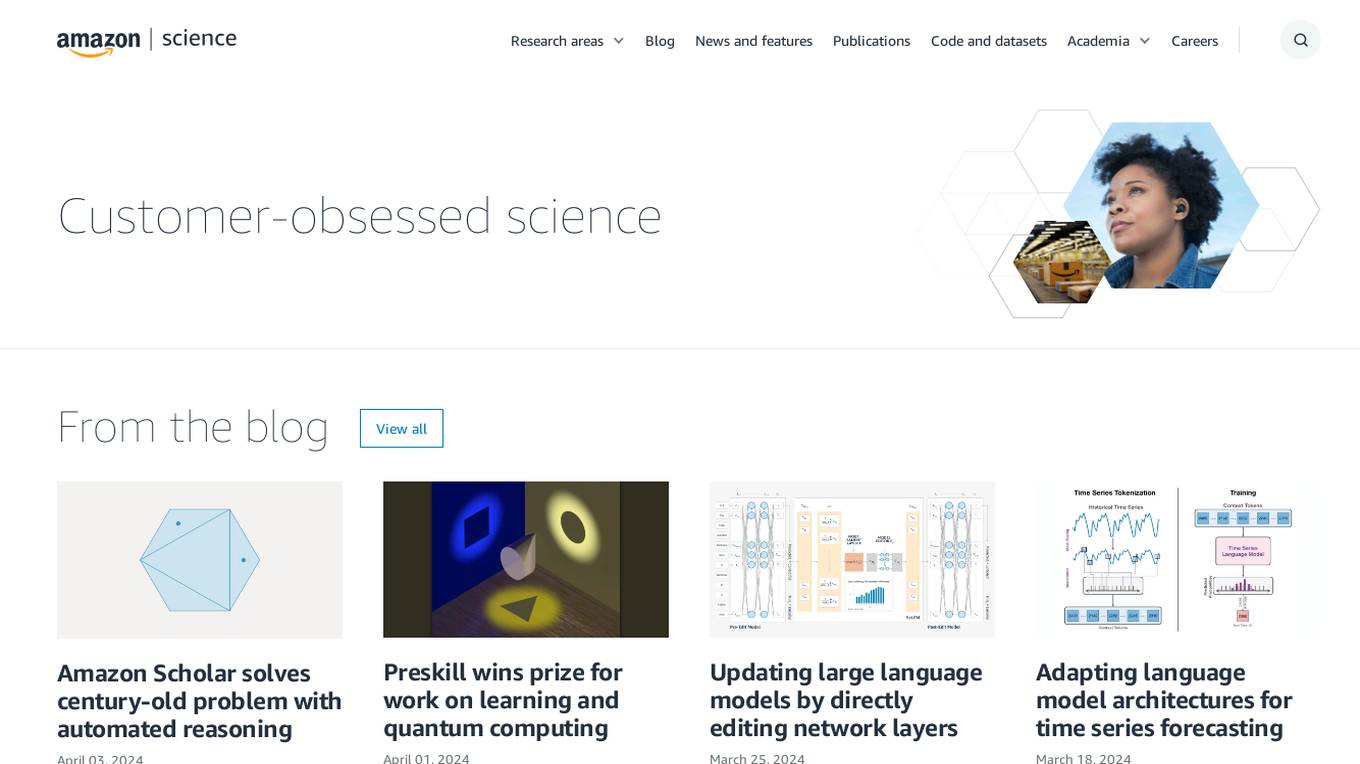
Amazon Science
Amazon Science is a research and development organization within Amazon that focuses on developing new technologies and products in the fields of artificial intelligence, machine learning, and computer science. The organization is home to a team of world-renowned scientists and engineers who are working on a wide range of projects, including developing new algorithms for machine learning, building new computer vision systems, and creating new natural language processing tools. Amazon Science is also responsible for developing new products and services that use these technologies, such as the Amazon Echo and the Amazon Fire TV.

Intelligence Age
The Intelligence Age website explores the advancements and implications of artificial intelligence in shaping the future of humanity. It discusses how AI can enhance human capabilities, solve complex problems, and lead to shared prosperity. The site delves into the history of technological progress, the potential of deep learning algorithms, and the transformative impact of AI on various aspects of society, such as healthcare, education, and scientific research. It emphasizes the need for responsible AI development to maximize benefits and mitigate risks in the Intelligence Age.

包阅AI
包阅AI is an intelligent AI reading assistant that covers various scenarios such as paper reading, legal analysis, scientific research, marketing, education, brand analysis, and business understanding. It supports multiple document formats like PDF, Word, PPT, EPUB, Mobi, TXT, and Markdown. The tool offers features like document interpretation, web page summarization, contract review, resume analysis, and financial document analysis. With the ability to analyze over 50,000 documents and assist more than 100,000 knowledge workers efficiently, it aims to enhance work and study productivity through AI-powered assistance.
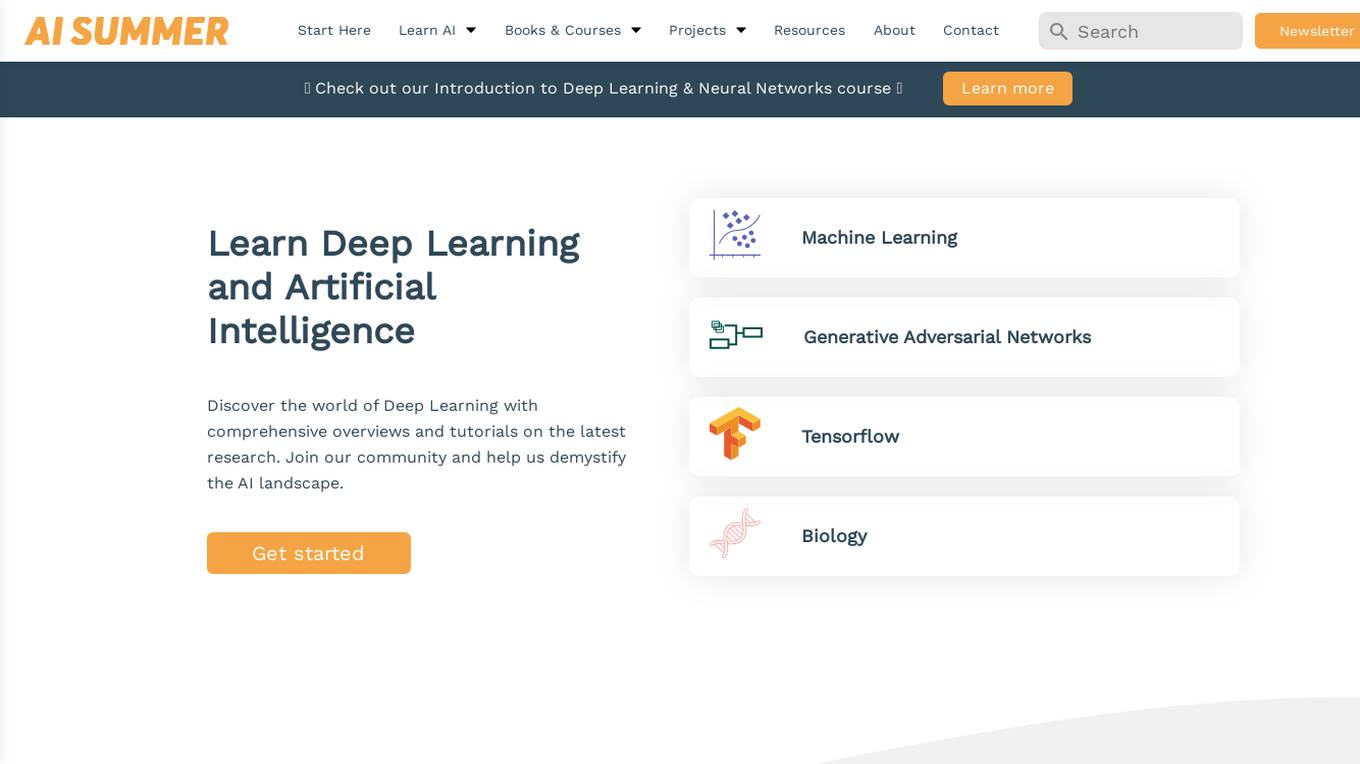
AI Summer
AI Summer is a free educational platform that covers research and applied trends in AI and Deep Learning. It provides accessible and comprehensive content from the entire spectrum of AI to bridge the gap between researchers and the public. The platform simplifies complex concepts and drives scientific research by offering highly-detailed overviews of recent deep learning developments and thorough tutorials on popular frameworks. AI Summer is a community that seeks to demystify the AI landscape and enable new technological innovations.
0 - Open Source AI Tools
20 - OpenAI Gpts
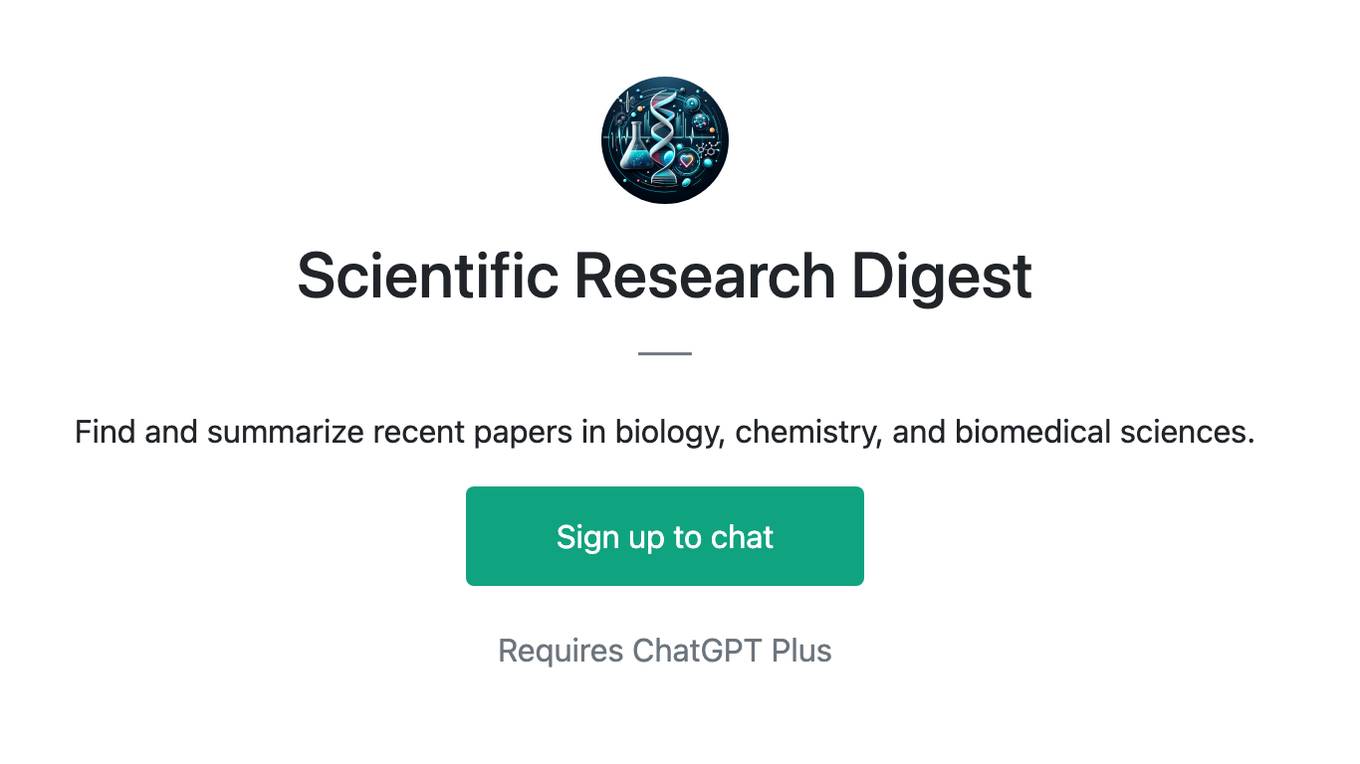
Scientific Research Digest
Find and summarize recent papers in biology, chemistry, and biomedical sciences.
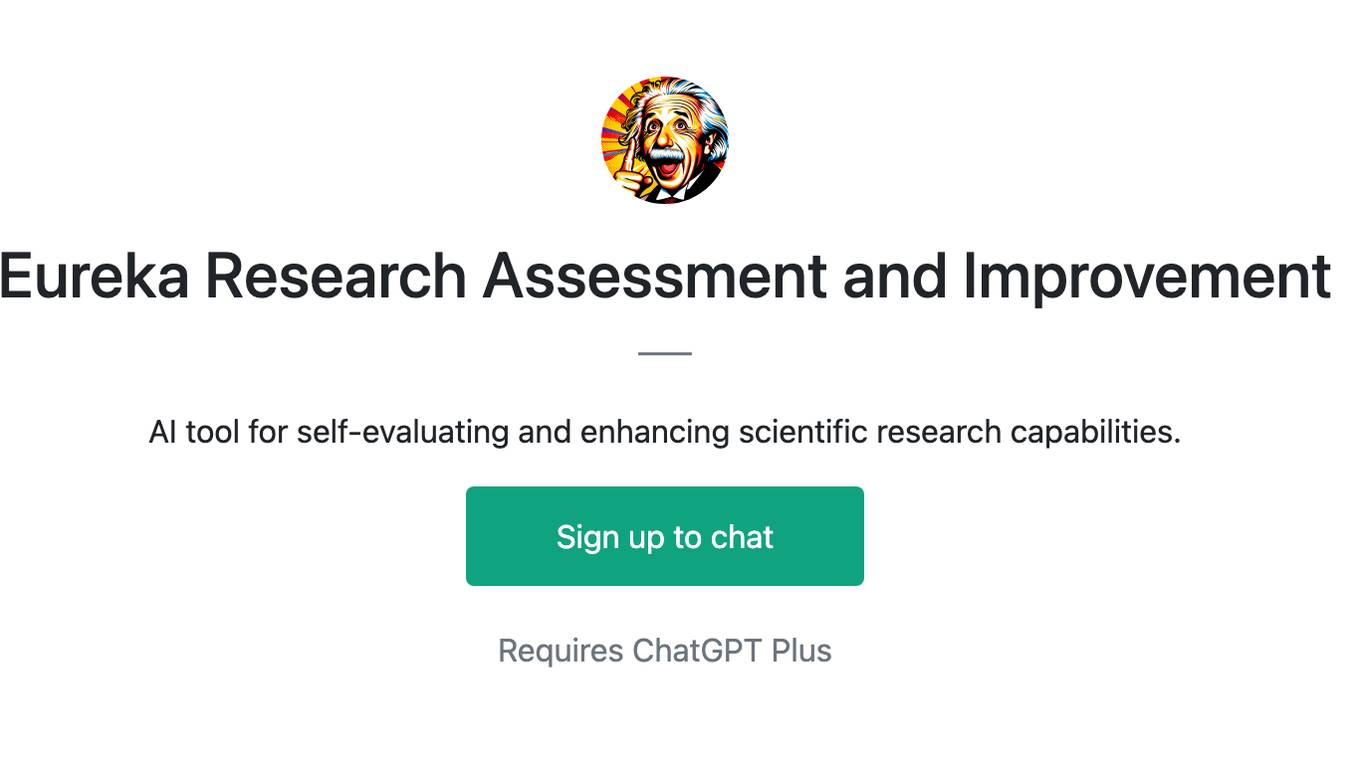
Eureka Research Assessment and Improvement
AI tool for self-evaluating and enhancing scientific research capabilities.

AMEDマニュアル
Expert in scientific research grants, answers in Japanese with detailed references and citations.
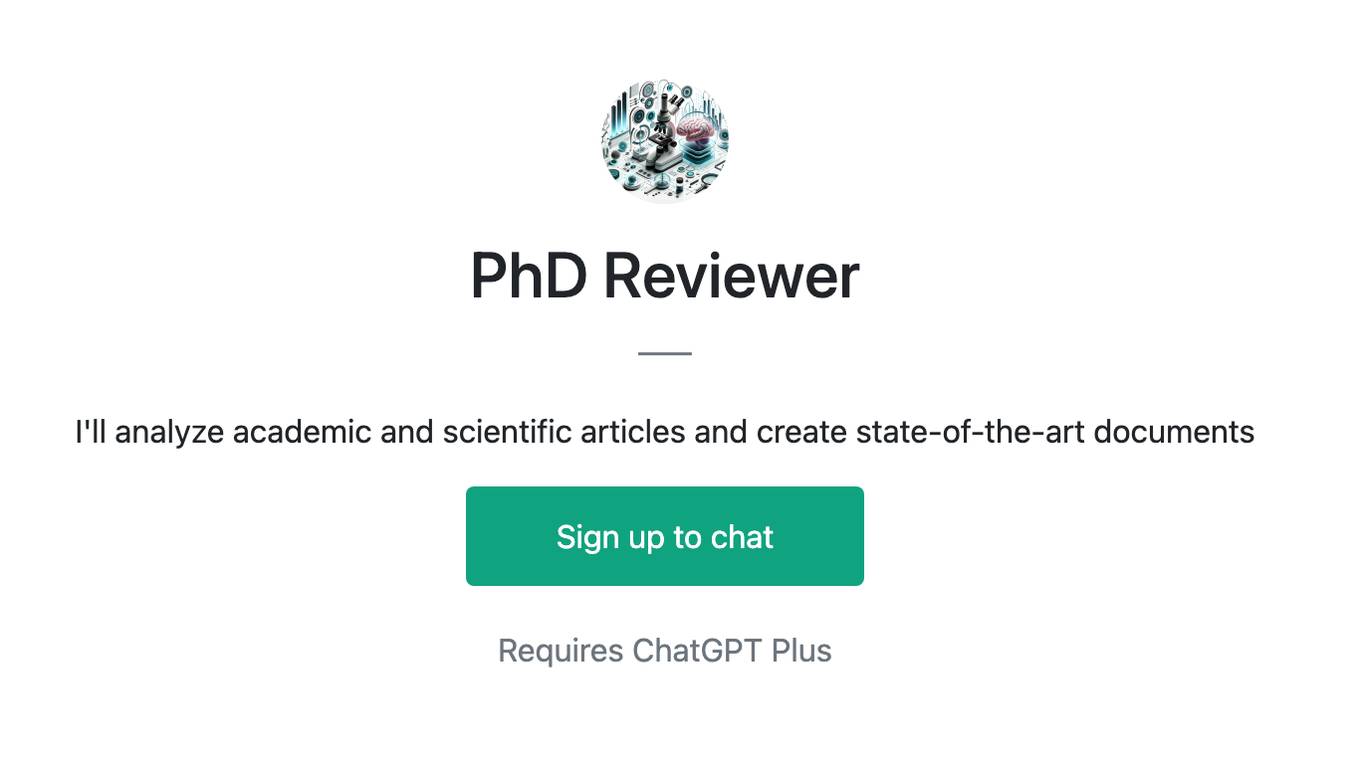
PhD Reviewer
I'll analyze academic and scientific articles and create state-of-the-art documents
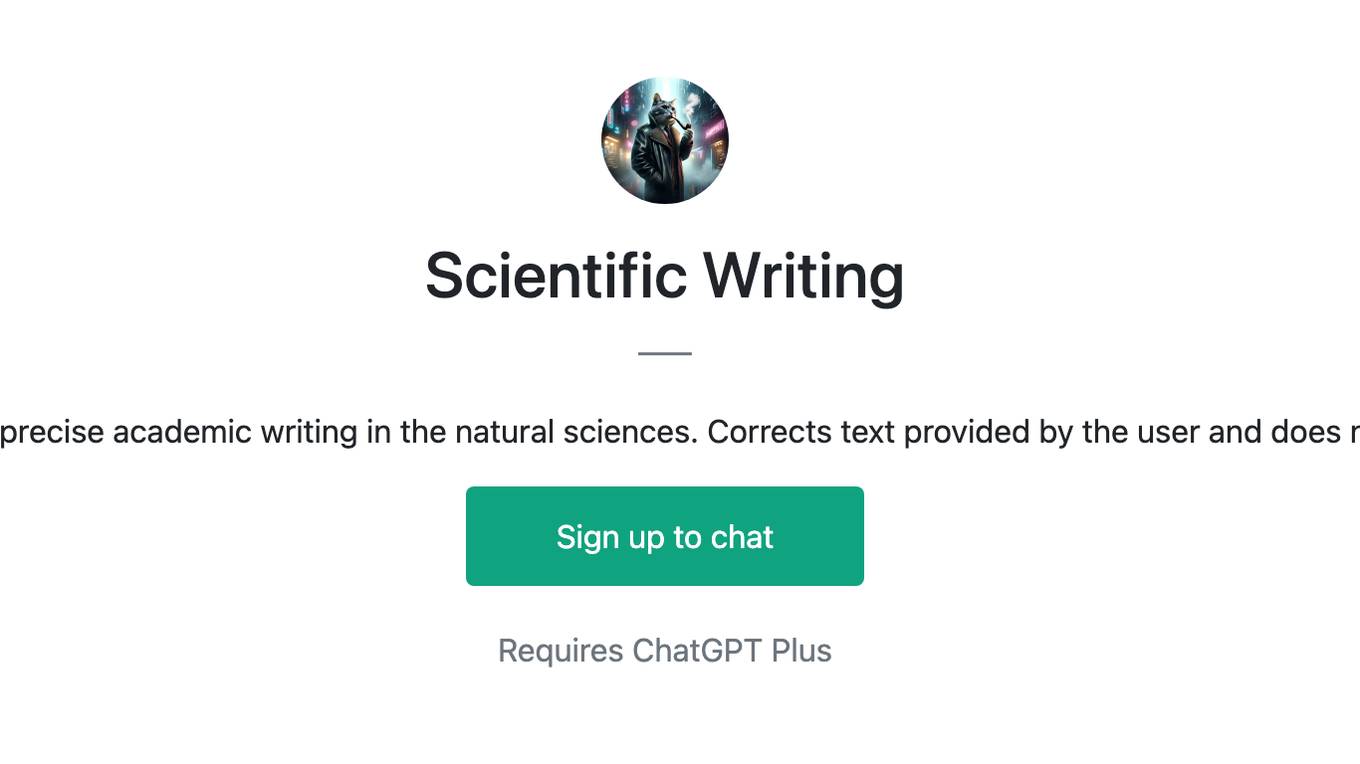
Scientific Writing
Specializes in clear, precise academic writing in the natural sciences. Corrects text provided by the user and does not write originally.
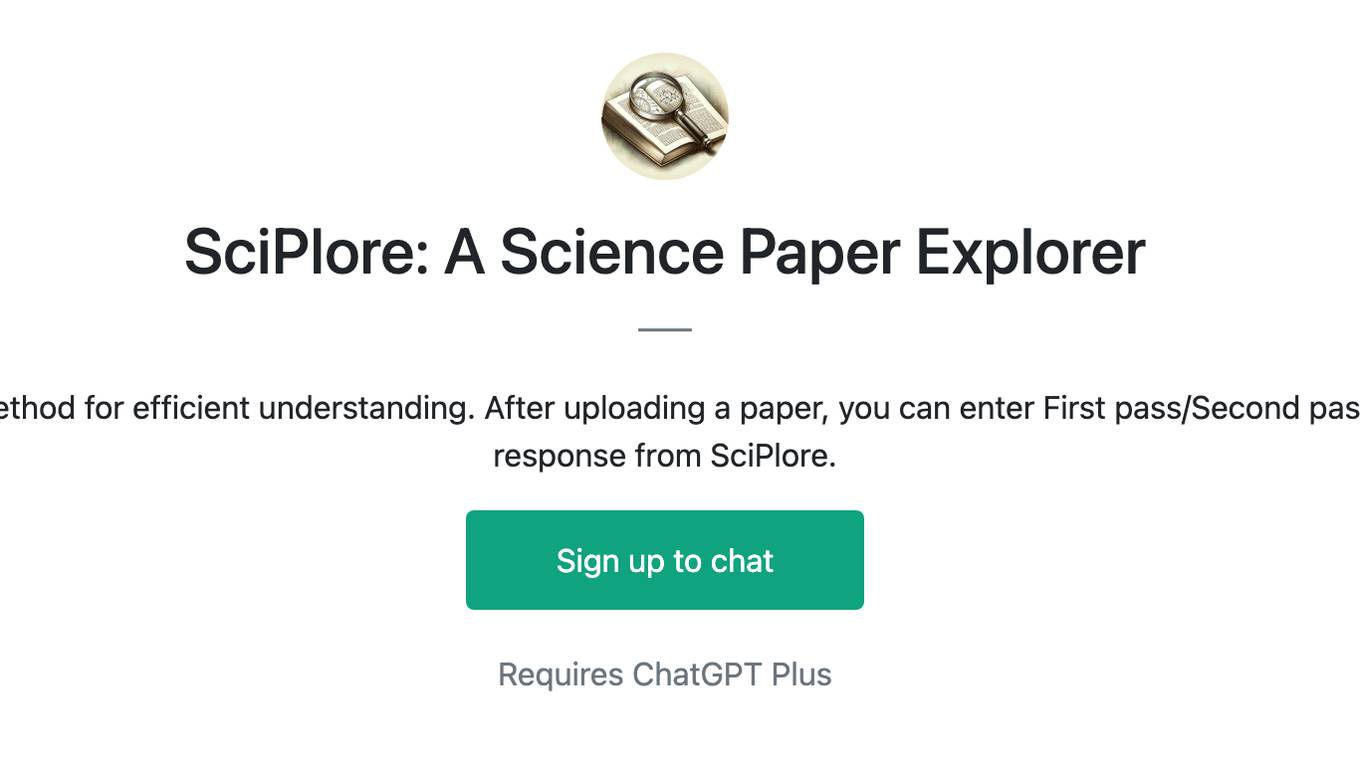
SciPlore: A Science Paper Explorer
Explain scientific papers using the 3-pass method for efficient understanding. After uploading a paper, you can enter First pass/Second pass /Third pass / Q&A to get different level of response from SciPlore.
Huberman GPT
This GPT garners all of the scientific information divulged by Dr. Andew Huberman, to answer your science-related questions
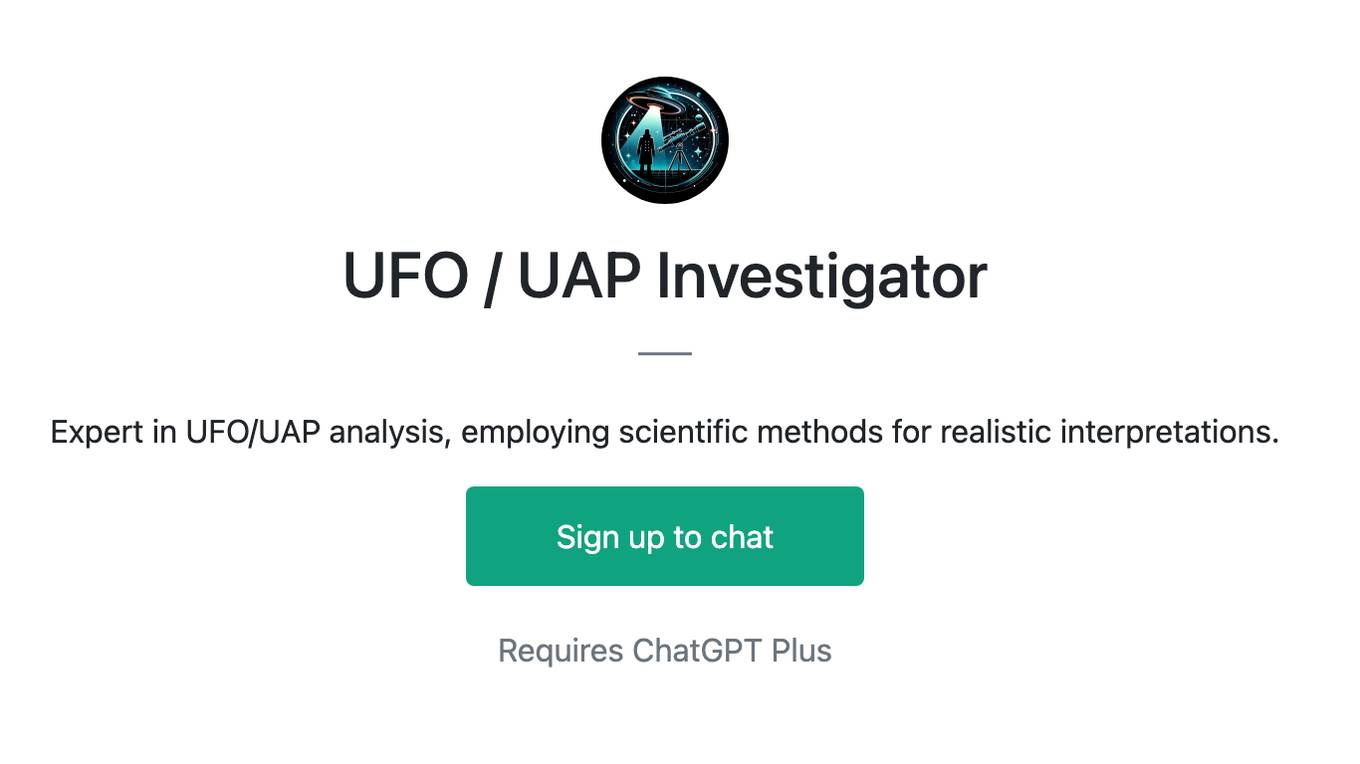
UFO / UAP Investigator
Expert in UFO/UAP analysis, employing scientific methods for realistic interpretations.
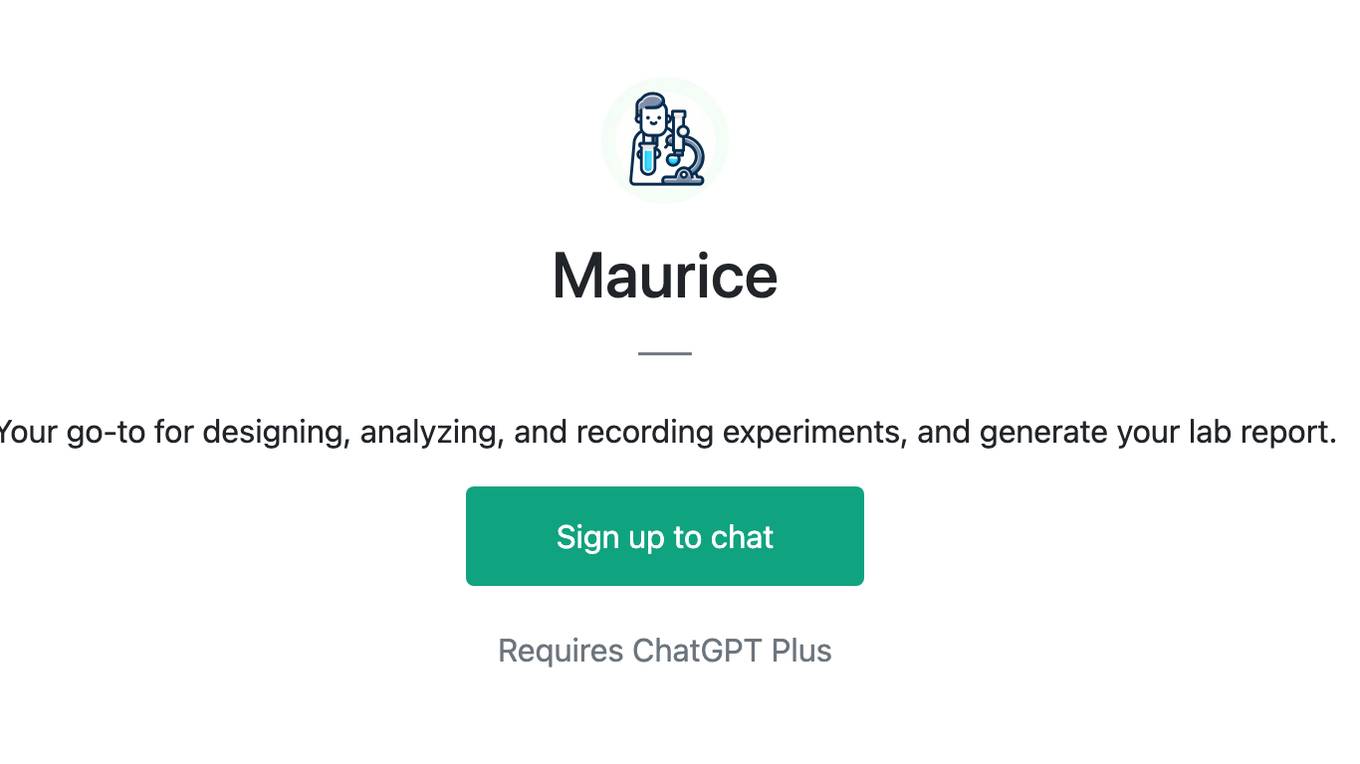
Maurice
Your go-to for designing, analyzing, and recording experiments, and generate your lab report.
